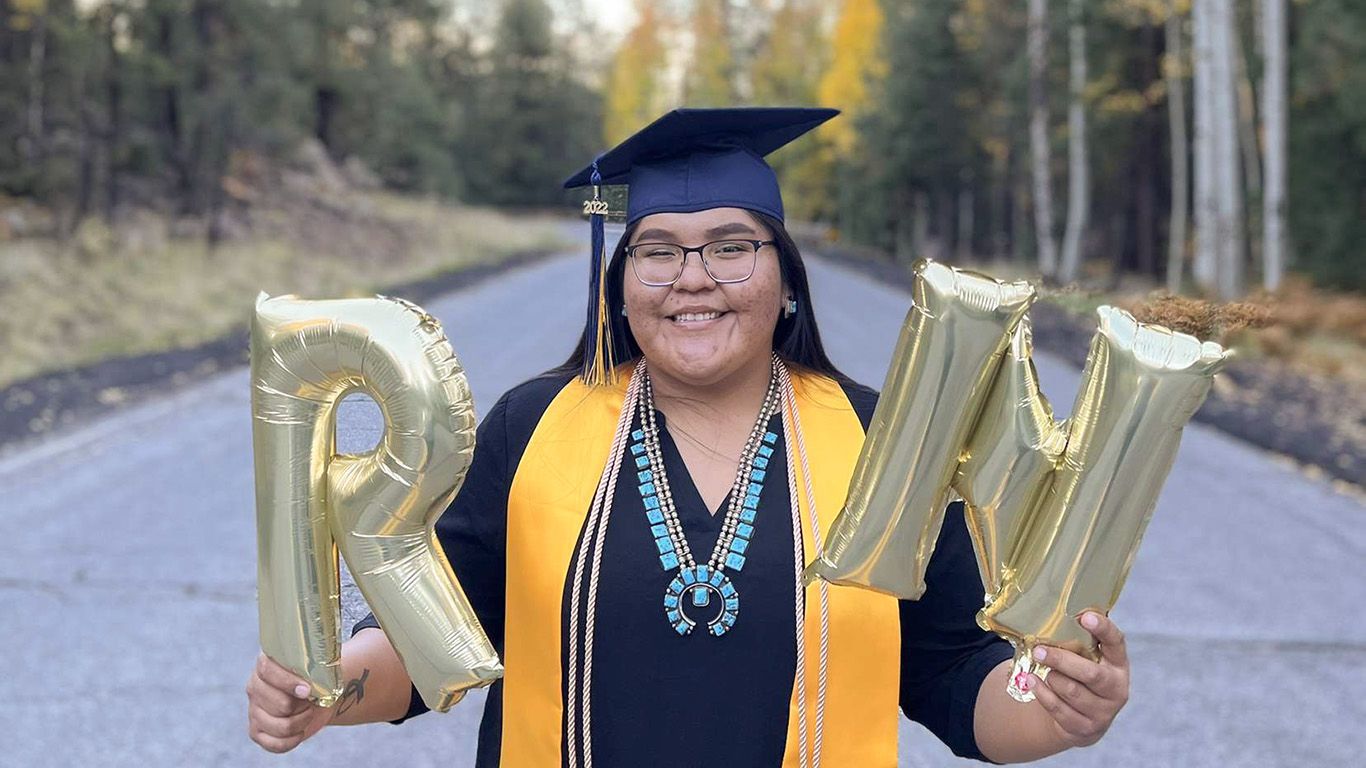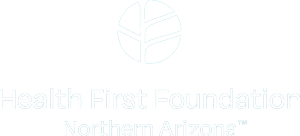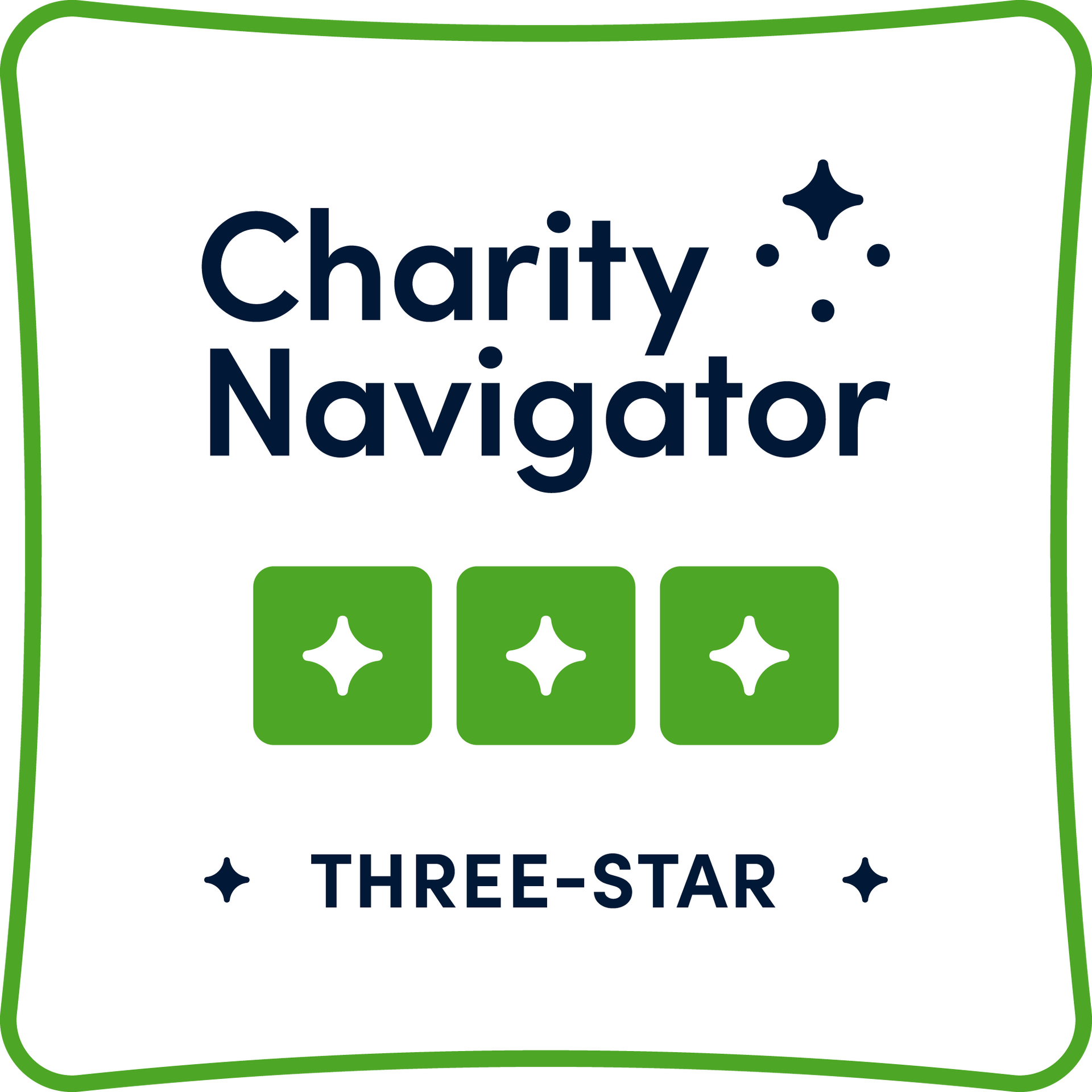Blog Layout
Learn Mental Health First Aid
Health First Foundation is a proud supporter of Mental Health First Aid and hosts in-person courses as part of our efforts to advance health and well-being in our region. The course teaches you how to help someone developing a mental health problem or experiencing a crisis. It instructs on identifying, understanding, and responding to signs of addictions and mental illnesses.
Today, more than 15% of Arizonans report frequent mental health distress. Knowing how to respond appropriately to loved ones and others facing mental health problems or crises is critical.
Please sign up here to be notified about future courses.

01 Aug, 2024
We are pleased to announce annual awards from our Community Health Grant for Northern Arizona: 2024. Grant funding of more than $500,000 has been awarded to nonprofit organizations with projects that align with our mission to strengthen community health in northern Arizona. The organizations and their funded projects include: Hopi Foundation: Assisting people in Navajo and Coconino Counties, Health First funding is aimed at addressing tribal behavioral health to prevent alcohol and substance abuse and assisting in recovery. Polara Health: Aiding people in Yavapai County, Health First funding works to improve access to behavioral and physical healthcare services for uninsured and underinsured people who struggle to navigate the system. Kingman Regional Medical Center: Health First funding supports people in Mohave County by providing patient education, access to self-management supplies, and healthcare services to those with diabetes who are uninsured and underinsured, thereby slowing the progression of the disease. Creek Valley Health Clinic: Health First funding supports the integration of oral health of low-income individuals living in a remote area of Mohave County into efforts to sustain their overall physical health through whole-person coordinated care. Griffith Blue Heart: By preparing and equipping Coconino County Sheriff’s Office first responders with automated external defibrillators and high-performance resuscitation training, Health First funding aids these officers to handle cardiac emergencies to save lives. Verde Valley Caregivers Coalition: In Yavapai County, many Verde Valley seniors live alone on an income at or below 150% of the poverty level, and many are unable to drive. With the support of Health First funding, these individuals receive personalized support, nutritious food, door-to-door transportation, and access to healthcare services so they can stay in their own home as they age. Northern Arizona Community Dental Days Collaborative: Health First funding is providing underinsured and uninsured adults in Coconino County access to oral health care to improve their physical, mental, and social well-being. We look forward to the positive outcomes these programs will generate with funding from Health First Foundation. To you, our donors and supporters, we offer our sincere appreciation. Your gifts have been put to work improving the health of people throughout northern Arizona.
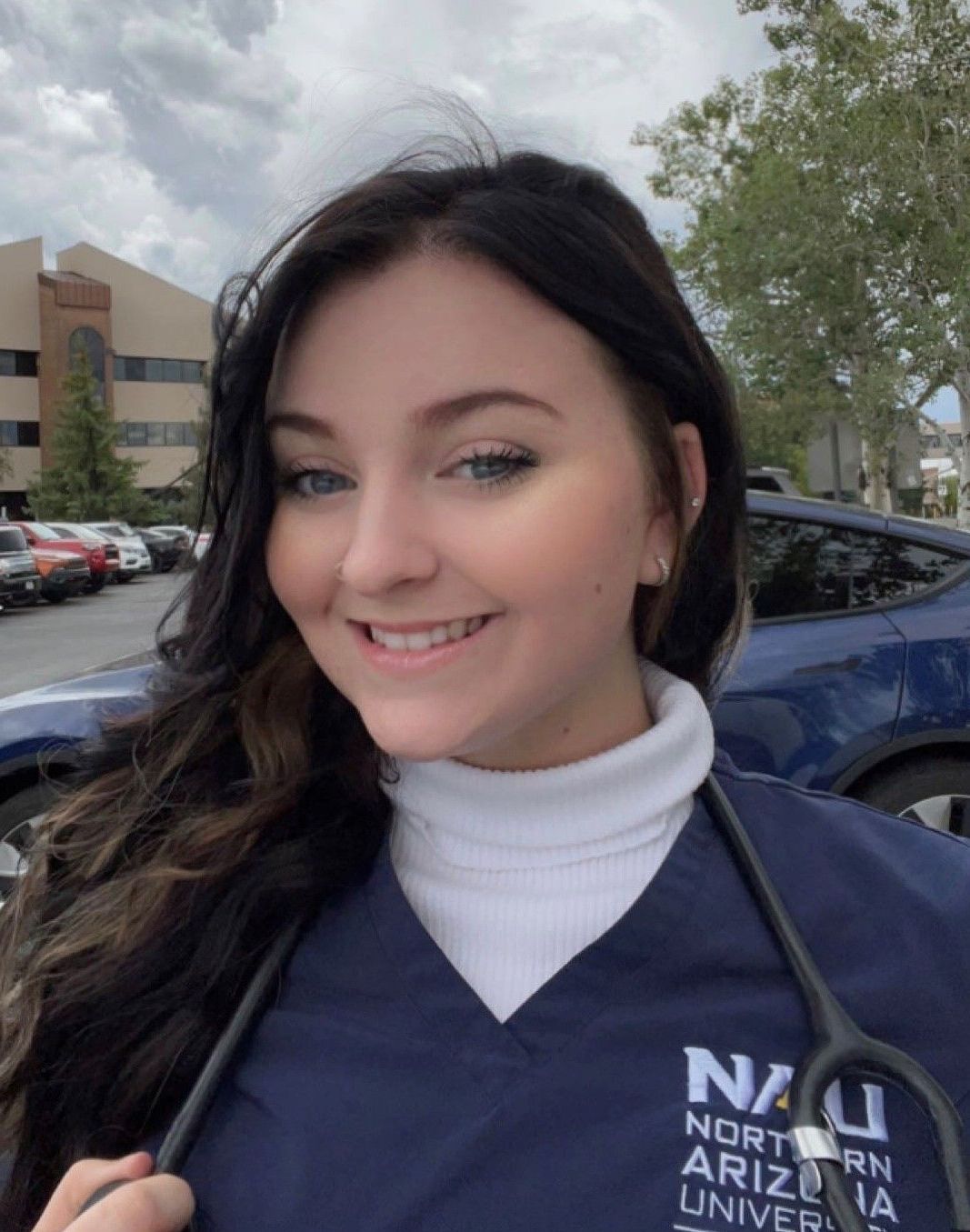
28 Feb, 2024
Bringing more quality care providers to Arizona is one part of Health First Foundation’s mission, and your partnership as a donor is what helps make this possible. You provide scholarships that support quality care in the region, and there is no better example of this than Grace Davis, recipient of both the Lamm Scholarship and the Kary Christensen RN Nursing Scholarship. An Arizona local with a passion for healthcare and service, Grace is currently studying to earn her Bachelor of Science in Nursing at Northern Arizona University (NAU)—completing a goal she set for herself at a young age. “I chose the path of nursing when I was 10 years old due to my grandfather passing away from leukemia,” Grace said. “I saw nurses that showed so much care and kindness toward him that I wanted to become a patient advocate myself.” Now, in 2024, Grace works as a Medical Assistant for Flagstaff Surgical Associates and is planning to graduate from NAU this December, after which she plans to stay in northern Arizona and work in trauma healthcare. Grace’s journey demonstrates how scholarships can help transform the community, and how efforts to support future healthcare providers create a cycle that returns quality service to Arizona patients and makes a profound impact. “My approach to nursing is understanding the patient and developing various ways to make them feel comfortable and protected during hard times with their health,” Grace said. For Grace, the funding she received helped pave the way for her to make her goals a reality. “The scholarships made an extreme difference in my life,” she said. “I’ve been able to focus on my education and I’ve been more successful.” Beyond the costs associated with earning a degree, these scholarships help fund new growth and advancement opportunities for the recipient, including experiences like simulation labs featuring medical mannikins that can emulate a variety of health conditions, to current training focused on physical and mental health. “Nurses play an important role in health, as they use therapeutic communication to create a bond with their patient and advocate for utmost care. I am learning to use my education in this same way.” Grace wants to focus her attention on helping less-fortunate families in the community to access care. “I want to create a program to encourage providers and volunteers in Flagstaff to assist the low-income community of northern Arizona in having better healthcare access,” Grace said. “The increase in healthcare prices leaves families vulnerable, especially when it comes to specialty facilities and preventative care.” Driven by their passion for the community, donors can open doors for those who may not have these opportunities otherwise. Their investments often benefit the broader community, and this fact is not lost on Grace. “I just want to share my gratitude with everyone who helped me, trained me, and inspired me to be a nurse. They all supported me to achieve my dreams.” About Health First Scholarships To support and address the critical need for quality health professionals in our region—like Grace Davis—Health First Foundation offers financial assistance to undergraduate and graduate students living in northern Arizona and studying in health and healthcare fields. We can offer these annual awards because of the incredible generosity of our donors. Learn more about our scholarship opportunities.

17 Nov, 2023
We are grateful to the many people who support Health First Foundation with their time, talent, and treasure. Each year, we recognize a few of these supporters for their outstanding commitment to our mission of improving health and well-being in northern Arizona. “These honorees embody our mission by addressing critical health needs in our region,” said Health First President and CEO Sandra Kowalski. “Their efforts have made a lasting difference that resonates profoundly across our northern Arizona communities.” These are our 2023 Community Health Champions. Wayne Robert Fox: A Legacy of Financial Stewardship Posthumously honored, the late Wayne Robert Fox served as the treasurer and finance chair of our board of directors from 2019 to 2022. After retiring from a remarkable 34-year career at Northern Arizona University, Wayne played a pivotal role in guiding the financial and investment strategies of Health First Foundation amidst the unprecedented challenges posed by the pandemic. His strategic thinking, innovative approach, and resourceful nonprofit financial management during this critical period were invaluable. Wayne’s dedication to the Health First cause and northern Arizona and its people remains a shining example of selfless service to others. Patrick Schweiss: Shining the Spotlight on Mental Health Awareness Patrick Schweiss, executive director of the Sedona International Film Festival, is recognized for his commitment to the arts and community well-being. Under his guidance, the film festival collaborated with Health First Foundation to advocate for mental health awareness via live theater performances. This initiative reached hundreds of theatergoers and 1,400 local high school students, culminating in 20 residents completing Mental Health First Aid training. We are deeply grateful to Pat for harnessing the power of the performing arts to shine a spotlight on mental health education and awareness. Brandon Griffith & Griffith Blue Heart Nonprofit: Saving Lives by Training and Equipping Law Enforcement Brandon Griffith, a decorated law enforcement officer and sudden cardiac arrest survivor, is the founder of Griffith Blue Heart – a nonprofit committed to providing training and AEDs so that law enforcement officers can effectively respond to time-sensitive medical emergencies. With funding from Health First Foundation, Brandon and his team trained and equipped Flagstaff police officers to provide life-saving assistance in cases of cardiac arrest and other emergencies. The result: Flagstaff police have already helped save several lives. Devoted and tireless in their efforts, the Griffith Blue Heart team is a testament to their motto: Earn each day. A Tradition of Recognition: Community Health Champion Awards The Community Health Champion awards, presented annually at the discretion of the Health First Foundation president and board of directors, are a tribute to individuals who epitomize the Health First mission. Their stories inspire us to be agents of positive change in our communities, reminding us that we can make a lasting impact on community health and well-being through collaboration and commitment.

15 Nov, 2023
Cardiac arrest is a life-threatening medical emergency that can strike anyone, anywhere, anytime. Unfortunately, when it happens outside of a hospital setting, the chances of survival are often grim. In Coconino County, more than 200 people die each year from out-of-hospital cardiac arrest, underscoring the urgent need for timely and effective intervention. Experiencing a cardiac arrest can be a terrifying ordeal. When the heart suddenly stops beating effectively, it deprives the body of oxygen, leading to organ damage and death. Immediate action is crucial to increase the chances of survival. Research shows that early resuscitation and defibrillation can significantly improve outcomes in cardiac arrest cases. In 2022, Griffith Blue Heart Nonprofit aimed to increase the chances of survival in the Flagstaff community by earning a Health First Foundation grant. The grant brought new training and equipment to Flagstaff police, enabling them to respond effectively to time-sensitive medical emergencies. With impressive response times, police are well-positioned to play a vital role in saving lives. That’s why Griffith Blue Heart training targets law enforcement. Often the first to arrive at an emergency scene, officers are uniquely positioned to provide high-performance resuscitation and rapid defibrillation before emergency medical services arrive. These interventions can be lifesaving in cardiac arrest and situations like drowning, drug overdose, and profuse bleeding. The Griffith Blue Heart team conducted three intensive day-long training sessions for Flagstaff Police Department officers. These sessions simulated emergencies police might encounter during daily patrols, providing them with knowledge and hands-on experience to respond effectively in high-stress situations. Another critical component of the Griffith Blue Heart initiative was the deployment of automatic external defibrillators (AEDs) in patrol vehicles. An AED is a portable device that can analyze a person’s heart rhythm and, when necessary, deliver an electrical shock to help the heart reestablish an effective rhythm. These devices are instrumental in treating sudden cardiac arrest, where time is of the essence. Through the grant, Griffith Blue Heart equipped 54 Flagstaff Police Department patrol vehicles with AEDs, ensuring officers have access to this lifesaving technology when responding to emergencies. Saving lives in the Flagstaff community has been a collaborative effort. The dedication and commitment of Flagstaff police officers, who now have the training and tools to make a difference in critical situations, have been nothing short of heroic. Additionally, Guardian Medical Transport in Flagstaff provided valuable support to this initiative by assisting with training, registration and deployment of the AEDs, and upkeep of the defibrillators. The impact of this initiative is tangible. The training and AEDs, coupled with the dedication of Flagstaff police officers, have already helped save at least seven lives, including an infant. The partnership between Health First Foundation, Griffith Blue Heart, and the Flagstaff Police Department serves as a shining example of what can be achieved when a community comes together to address a pressing issue. With the grant, training, and deployment of AEDs in patrol vehicles, Flagstaff is a safer place to live, work, and play. The full impact of this initiative will be felt for generations and beyond. As Griffith Blue Heart founder and CEO Brandon Griffith says, “When one life is saved, it rings on for eternity.”
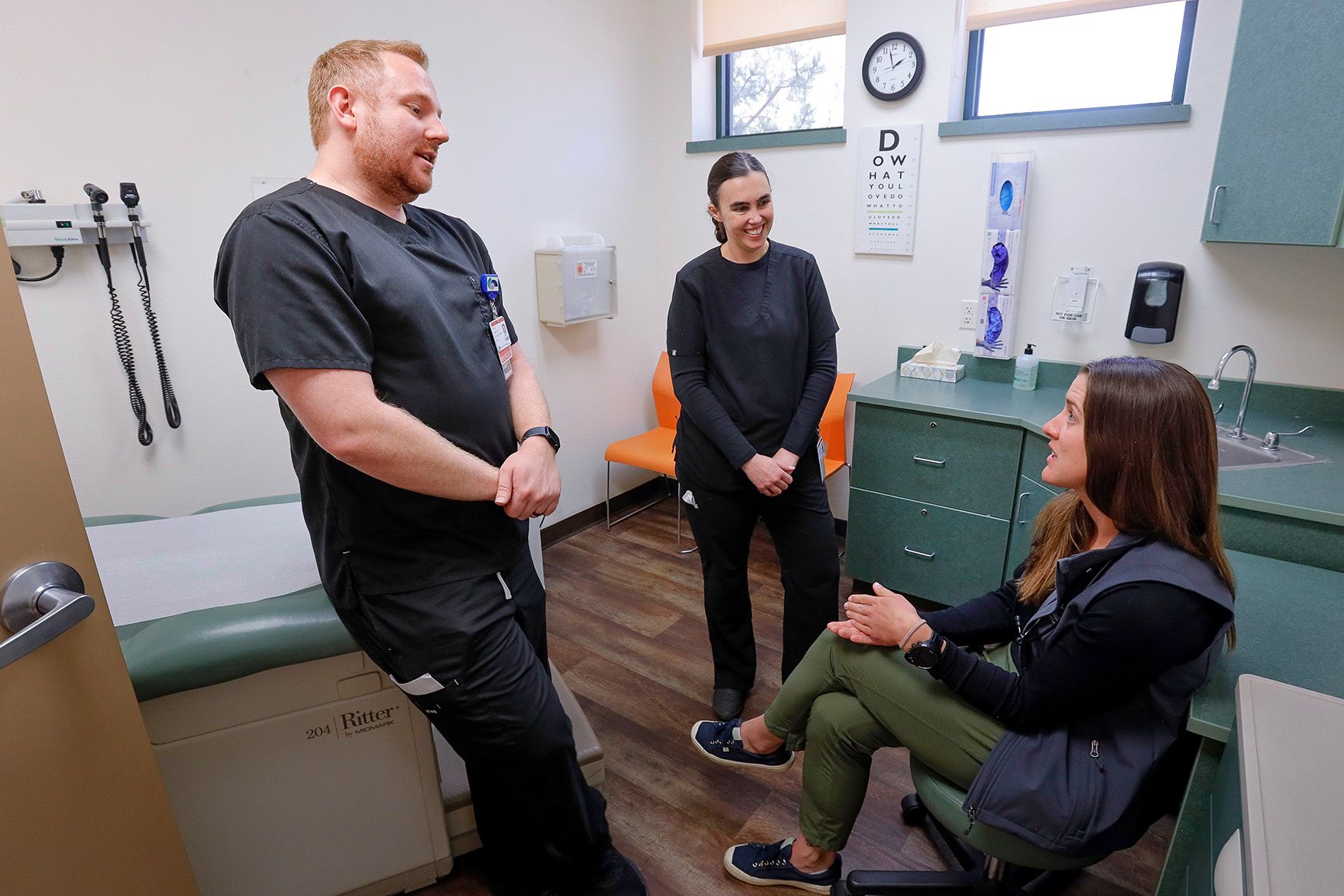
03 Nov, 2023
To help advance quality primary care in the region, Health First funded the establishment of team-based care in North Country HealthCare’s family residency program. The goal: Teach new physicians and their colleagues a coordinated approach to patient care and improve health outcomes. Team-based care is health providers working collaboratively with patients and caregivers to accomplish shared goals and achieve coordinated, quality care. Such care works to minimize the occurrence and severity of disease, offer better disease management, limit emergency department visits, and lower healthcare costs. A Health First grant enabled the residency clinic to explore team-care models, determine what worked, and implement new care approaches that benefit patients and their families. Residents learned the approaches and value of team care during the grant project. They implemented daily huddles to discuss patient care and utilized a new tool to identify patient gaps and streamline clinic visits. With these innovations, patients experienced more focused and efficient care. As part of the program, the residency team established monthly interdisciplinary case conferencing to address the complex care needs of HIV/AIDS patients. “We get together and do a deep dive into the patient – their medical history, their care, what resources they have, what’s holding their progress back, all of it,” explains Dr. Sarah Coles, the residency director. “In the end, we come together with an agenda and a care plan specific to that patient.” One resident made this encouraging observation: “Participating in case conferencing has benefited both me and my patient. As a primary care physician, I work hard to ensure that my patients receive high-quality care. Sometimes, though, we are limited by time, costs, and competing priorities. Case conferencing has helped to bridge that gap and improve the care patients receive.” A federally qualified health center, North Country focuses on people who often can’t afford care at 11 locations across northern Arizona. The health center’s family care residency program is the only one in the region. While this grant project was confined to the residency clinic and the 7,000 patients seen during the grant period, the impact will grow in two ways. First, with a newfound understanding of the power of collaborative medicine, graduating residents will take the holistic, team-care approach to their practices impacting future patients. Additionally, North Country HealthCare plans to expand the model throughout the organization, giving all its patients the benefit of quality, team-based primary care.

17 Jul, 2023
Improving mental and behavioral health is a Health First priority. We want to share with you the impact one of our grant-funded programs is having on children and families in the Lake Havasu City area. This oasis in the desert sits in the southwestern part of our region in Mohave County, where 25% of the youth population lives in poverty. Mohave County is a significant mental health provider shortage area and has reported not a single pediatric mental health provider in recent years. To help alleviate the need, Health First Foundation awarded a grant to Arizona’s Children Association to establish outpatient and in-home behavioral and mental health services for children and their families in and around Lake Havasu City. So far, the program has served more than 140 individuals. Robert, 15, is one of them. Robert’s life had been a struggle from the start. Born to a mother who was misusing drugs, he had often been homeless and once took shelter in a junkyard shed. A year ago, he lost the only family member that could provide him care, his grandmother. A friend’s mother took Robert in and sought help for the teenager suffering from depression, anxiety, PTSD, sleep problems, and other issues. Arizona’s Children Association assists Robert and his new family with therapy and other needs through its expanded outpatient program. “As humans on this planet, our number one priority should be to protect our children,” said Robert’s guardian parent. “They need to be protected, and they shouldn’t be hurt.” Robert and his family are among the hundreds of thousands of people touched by Northern Arizona Community Health Grants from Health First Foundation. Our grants help area nonprofits provide care, preventative services, health education, and other assistance to those in need. They are made possible through the generosity of our donors.
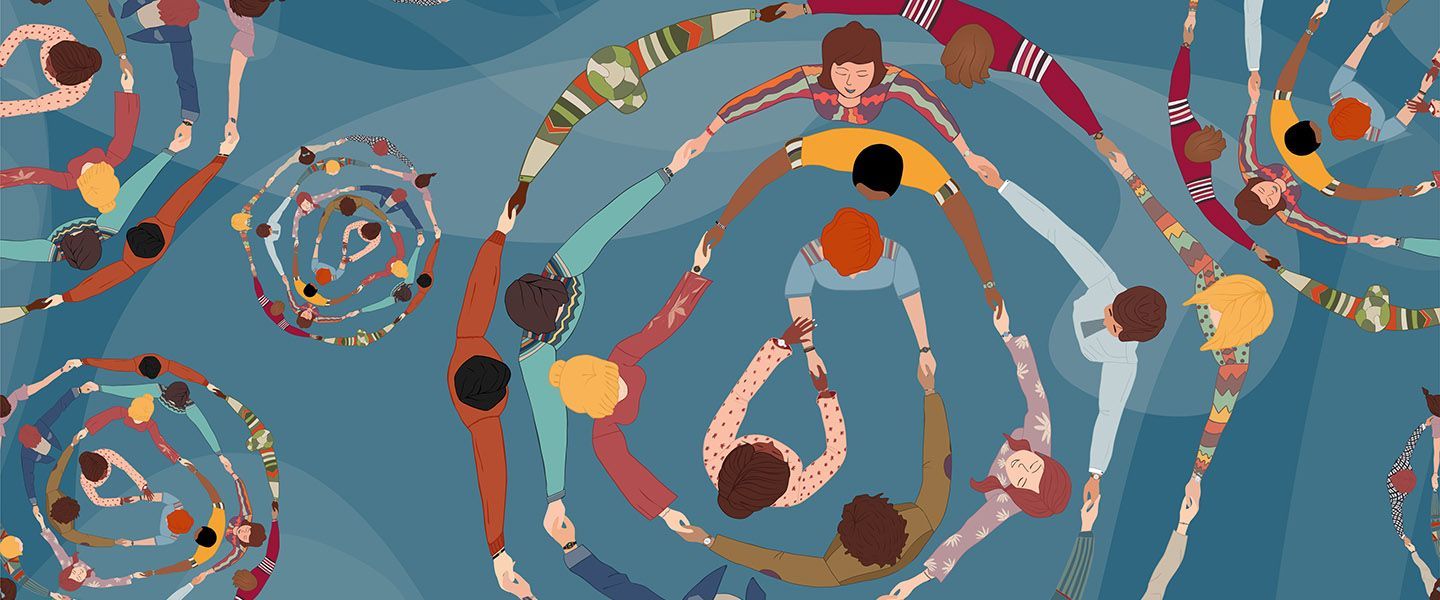
05 Jul, 2023
Health First Foundation is a proud supporter of Mental Health First Aid and hosts in-person courses as part of our efforts to advance health and well-being in our region. The course teaches you how to help someone developing a mental health problem or experiencing a crisis. It instructs on identifying, understanding, and responding to signs of addictions and mental illnesses. Today, more than 15% of Arizonans report frequent mental health distress. Knowing how to respond appropriately to loved ones and others facing mental health problems or crises is critical. Please sign up here to be notified about future courses.
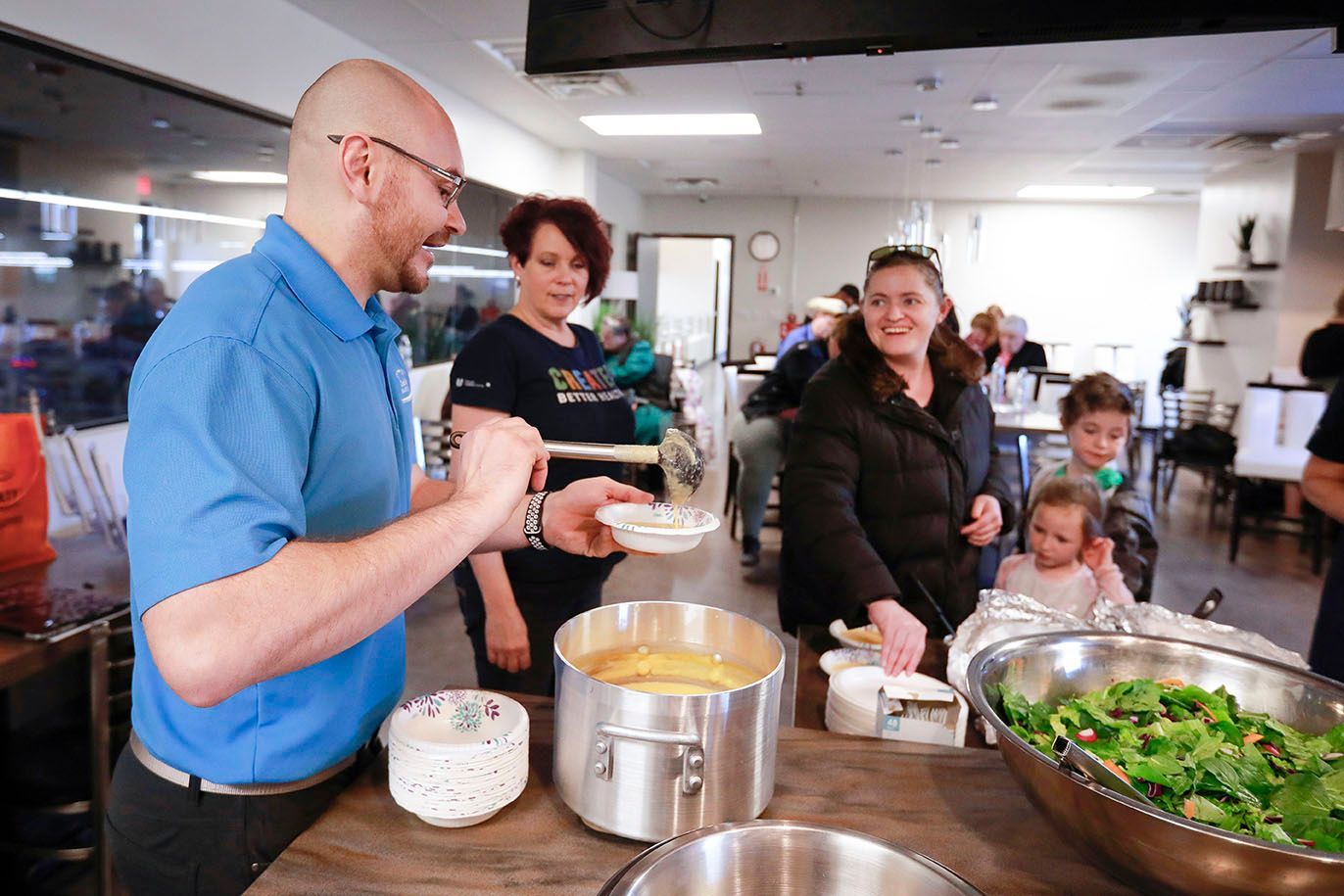
23 Feb, 2023
“Whole foods are our best foods!” They include well-proportioned lean protein, fresh vegetables, fruit, and whole grains. Nutrition educator Cheryl Lines was addressing a group of residents in the far reaches of northern Arizona. While she spoke, kitchen helpers prepared a velvety carrot-turnip soup and a casserole made with chicken, spaghetti, tomatoes, and fresh spinach. The complimentary class is part of a Health First grant-funded initiative led by Creek Valley Health Clinic of Colorado City. Colorado City and its sister town of Hildale, Utah, have poverty rates hovering around 35 percent. Until Creek Valley Health Clinic opened in late 2019, residents had no local primary care facility and had to drive two hours or more for specialty care. These factors left many with undiagnosed and untreated chronic conditions. Strengthening Nutrition and Activities in our Connected Community (SNACC for short) promotes healthy eating and lifestyles. The program has reached more than 525 rural residents in its first six months with nutrition classes, recipes, and incentives like produce vouchers. At the same time, it distributed 113,000 pounds of nutritious food to clinic patients and other residents. “Everyone is excited about the project. It’s helping educate the community about the importance of eating healthy and being physically active throughout their lives,” said Lines, a Create Better Health Ambassador from Utah State University. Her team and the local Short Creek Dream City Food Bank are partnering with Creek Valley Health Clinic to implement the new SNACC program. Colorado City mother Marjorie Holm attended a recent SNACC nutrition class with her children. “I like to learn how to read labels, but my kids like to smell and taste all the food,” she said. “The classes give me more ideas for recipes and how to cook them. With three children, I’m all about learning all I can about food.” They all tried the soup, a blend of simmered carrots, potatoes, turnips, leeks, and garlic, finished with coconut milk and chopped fresh parsley. (Get the recipe for Creamy Carrot and Turnip Soup.) Another mother attending the class was happy to learn how nutritious foods can come together in one quick recipe. “I’ve never tried chicken with spaghetti and spinach before,” she said. “It works. It’s good. It’s always good to find new ways of cooking.” Getting healthy foods to people and teaching them how to prepare nutritious meals are vital to reducing food insecurity and improving health, according to the nationwide Healthy People 2030 initiative. A healthy diet helps children grow and develop properly and reduces their risk of chronic diseases. Adults who eat healthily tend to live longer and have a lower risk of obesity, heart disease, type 2 diabetes, and certain cancers. Health First Foundation invests in this innovative program and those like it to advance health and well-being for all in northern Arizona. Your donation to Health First helps improve health in underserved communities.
Mailing Address
PO Box 1832
Flagstaff AZ 86002


